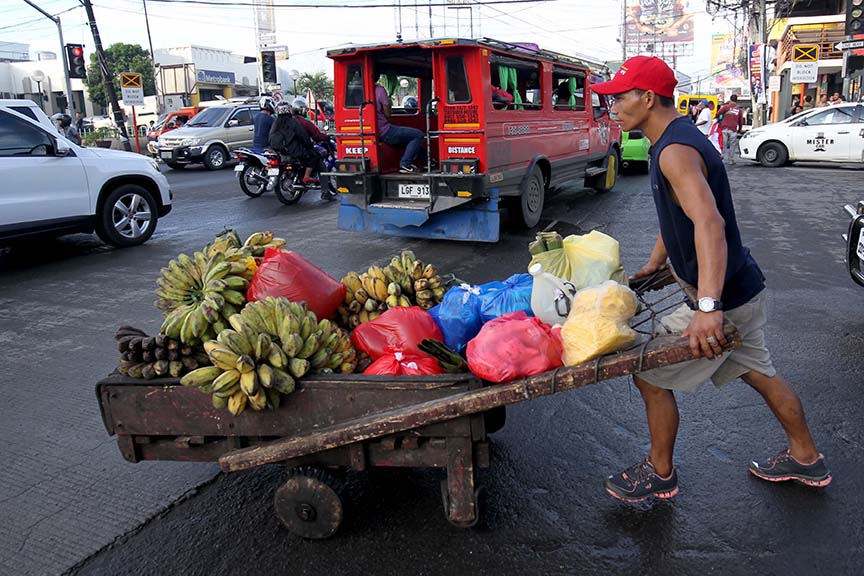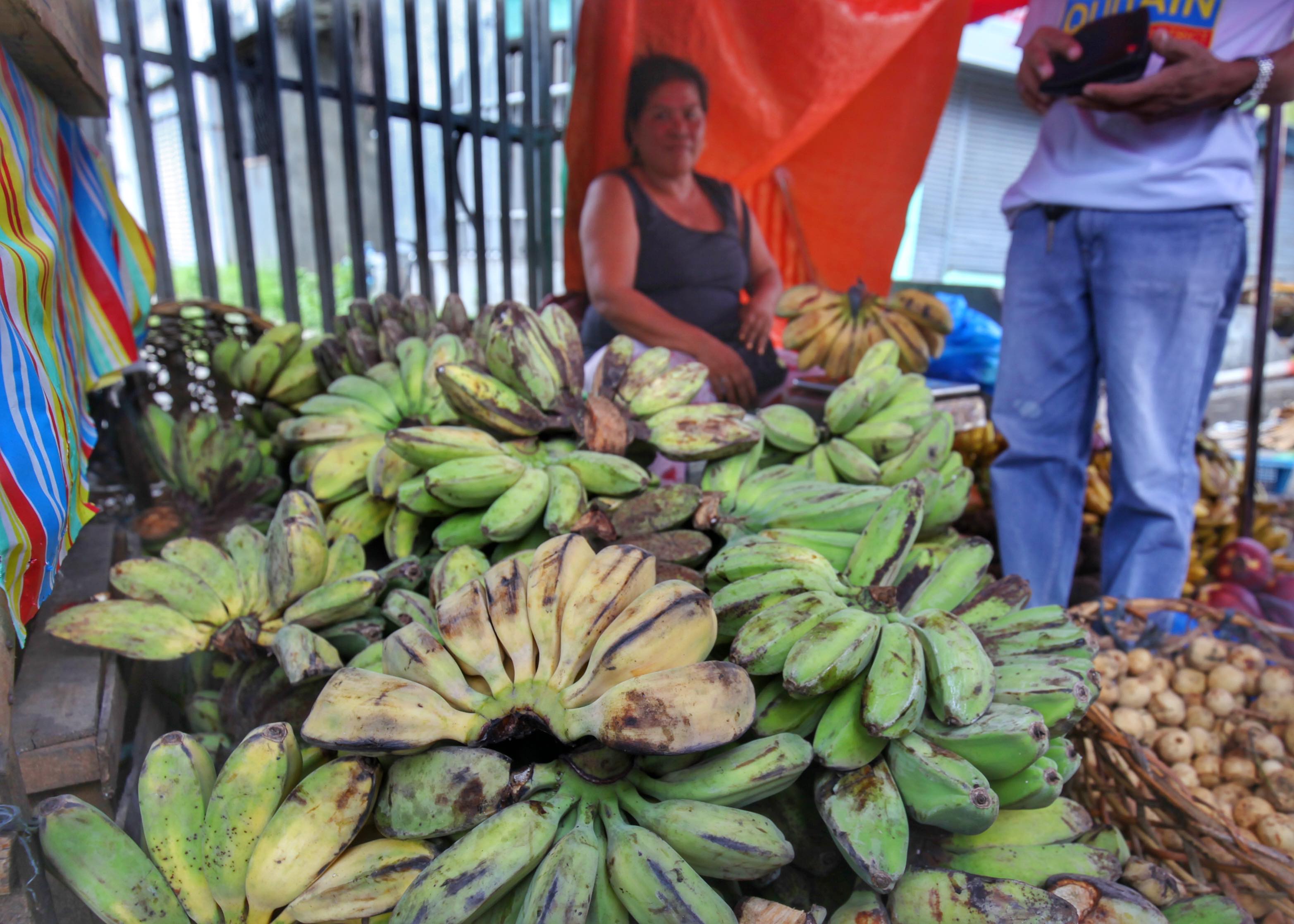
Don’t underestimate the lowly native cardava. This banana variety has huge export potential according to industry players.
Apart from its export-bound and highly popular cavendish bananas, Davao Region is also the top producer of cardava bananas, whose destination has been the traditional charcoal grill and frying pan. On a stick or caramel-coated, the cavendish is popular as far as Pinoy snacking is concerned. Not for exports.
Reason? Growers of this variety lack interest to go into commercial production due to the lack of supply of good quality cardava variety.
Apart from being used for Filipino staple snacks maruya and banana cue, cardava variety is also used as processed banana chips, which is in demand not only in the domestic but also in the export market. Currently, cardava variety’s biggest markets are China, Vietnam, US, Germany and various Asian countries.

“One very significant reason for the moment is that our banana chips processors could not meet the market demand because they don’t have enough supply of this cardava variety. There is a huge potential not only in the domestic market. The variety is also being used for cooking bananas and table bananas such as maruya, ginanggang, and all other kinds of delicacies that use banana as a raw material,” Marizon Loreto, executive director of Philippine Exporters Confederation in Region 11 (PHILEXPORT DAVAO) told media.
Loreto said in terms of opportunities, there is great potential for cardava. However, stakeholders are being confronted with the lack of good quality planting materials, lack of laboratory and nursery that could supply one with the right material to be planted.
“If you are a potential investor of cardava variety and you are not in a position to find a good source of nursery and planting materials, how can you go into commercial production? That is one of the things that are really bugging the industry now,” she said.
Loreto hinted that a Chinese firm is interested to purchase 100 metric tons of banana chips in a year. However, local processors could not meet the required quality.
“A week ago I had a meeting with Chinese buyer who is very interested to purchase or procure banana chips from us but local processors are not so interested because according to them they already have their market and in fact they could not even supply much their own market and because of lack of raw materials,” she said.
Loreto said in Davao Region there used to have more than 40 processors but now there are only about 20 because some them have folded up as they could not maximize their production capacity.
These problems will be among top concerns to be discussed in the upcoming Saging, ATBP Banana Forum and Business Matching Event slated on October 24 to 25 to be held at the Grand Men Seng Hotel.
Organized by PHILEXPORT DAVAO, the forum will focus on cardava/saba and lacatan bananas.
“This year we have centered our attention on the non-cavendish banana sector which are the cardava, saba, lacatan, and other varieties because over the years the potential of these varities have been very significant not only in terms of processed bananas like banana chips, banana flour but more so of the fresh cardava banana export,” Loreto said.
The forum aims to gather cardava/saba/lacatan banana farmers and growers, traders, buyers, banana chips processors, banana by-products manufacturers, exporters, potential investors, production inputs providers, logistics/shipping companies, Local Government Units (LGUs), national government agencies, SMEs, academe, financing/banking institutions, industry associations and other players in the banana value-chain.
“For the last 40 years according to the banana stakeholders particuarly the cardava, saba, lacatan nobody has really taken attention on this particular sector. Maybe that is the reason why the kind of production that they have over the years is just on a sort of a backyard thing. Nobody is really thought of going into commercial production and looking into a plantation based kind of commercial endeavors for this variety,” she said.
Among the objectives of the forum include foster better understanding on the potential of the cardava/saba/lacatan banana varieties and heighten interest for commercial production as well as improvement of the current farm practices to ensure industry growth and sustainability, strengthen the non-cavendish sector and build the capability of industry shareholders in order to gain a stronghold in the development of the whole banana industry, and build strong private sector-government partnership in ensuring that appropriate support programs and critical interventions are extended to address concerns of the industry.
The forum will highlight components that include banana forum, business matching, and mini exhibit.






